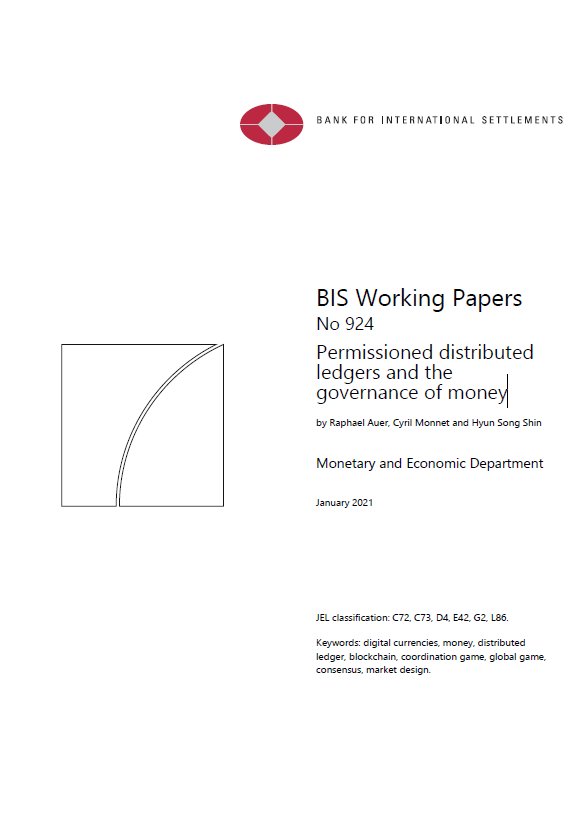
Permissioned distributed ledgers and the governance of money
Published: 2021-01-01
Organization: BIS
Tags: digital currencies, money, distributed ledger, blockchain, coordination game, global game, consensus, market design
Overview: We explore the economics and optimal design of “permissioned” distributed ledger technology (DLT) in a credit economy. Designated validators verify transactions and update the ledger at a cost that is derived from a supermajority voting rule, thus giving rise to a public good provision game. Without giving proper incentives to validators, however, their records cannot be trusted because they cannot commit to verifying trades and they can accept bribes to incorrectly validate histories. Both frictions challenge the integrity of the ledger on which credit transactions rely. In this context, we examine the conditions under which the process of permissioned validation supports decentralized exchange as an equilibrium, and analyze the optimal design of the trade and validation mechanisms. We solve for the optimal fees, number of validators, supermajority threshold and transaction size. A stronger consensus mechanism requires higher rents be paid to validators. Our results suggest that a centralized ledger is likely to be superior, unless weaknesses in the rule of law and contract enforcement necessitate a decentralized ledger.
